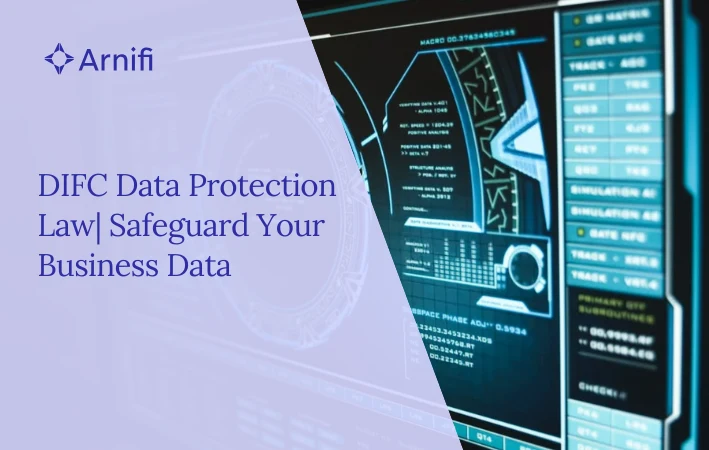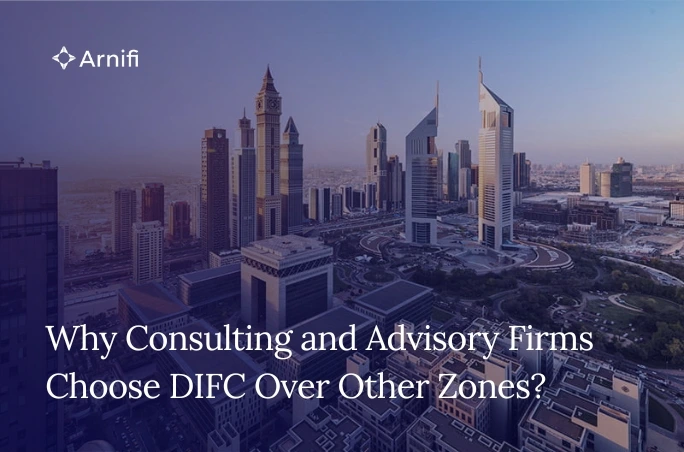DIFC Data Protection Law Explained | Compliance, Best Practices & Key Requirements for Businesses
by Rifa S Laskar Oct 09, 2025  7 MIN READ
7 MIN READ

DIFC Data Protection Law (DIFC Law No. 5 of 2020) is a legal framework that is designed to protect personal data within the Dubai International Financial Centre (DIFC). This law applies to all businesses operating within the DIFC & this basically includes data controllers and processors. It also aims to ensure transparency, accountability & safeguarding of the individual rights. In this article, we’ll explore how the DIFC Data Protection Law impacts your business data, compliance requirements & best practices to stay aligned with the law.
Table of contents
- 1. Introduction
- 2. What Is the DIFC Data Protection Law?
- 3. Key Principles of the DIFC Data Protection Law
- 4. DIFC Data Protection vs UAE PDPL: What’s the Difference?
- 5. Compliance Requirements for DIFC Companies
- 6. Penalties for Non-Compliance
- 7. How to Stay Compliant? Best Practices for DIFC Businesses
- 8. FAQs on DIFC Data Protection Law
- 9. Conclusion
1. Introduction
Why does the DIFC have its own Data Protection Law?
The Dubai International Financial Centre (DIFC) isn’t like the rest of the UAE; basically, it’s a financial free zone with its own rules & that includes how businesses handle their personal data. That’s where the DIFC Data Protection Law (DPL) comes in. It’s designed to make sure companies that operate here treat personal data responsibly while they stay in line with global standards like the EU’s GDPR. The law is all about transparency, accountability & protecting individual rights. If you’re running a business in the DIFC & you need to follow the DPL, as it isn’t just a formality and it’s essential. Ignoring it can lead to fines, damage to your reputation & regulatory trouble. At the same time, getting it right boosts trust with clients, partners & investors, all shows the world that your business takes data protection seriously.
2. What Is the DIFC Data Protection Law?
The DIFC Data Protection Law, also known as Law No. 5 of 2020 and it came into effect on 1 June 2020 it replaced the earlier 2007 law and improved the DIFC’s data protection framework to meet international standards. Its main goal is to ensure that personal data processed within the DIFC is handled responsibly, with full transparency, accountability & respect for individual rights. The law applies to all DIFC-based firms, as well as the data controllers and processors who manage the personal information on their behalf.
What this really means is that businesses operating in the DIFC have a clear set of responsibilities, and they must be transparent with individuals about how their data is used, and they must remain accountable for every processing activity & actively safeguard the rights of those whose data they collect. By meeting these requirements, DIFC-registered companies not only follow the law but also build trust and credibility with the clients, partners & stakeholders.
To help with global business expansion
make sure you choose us.
Get in touch with our team to find out about our approach
BOOK FREE CONSULTATIONResponse within 24 Hours
Great, please give us a brief detail about your business.
3. Key Principles of the DIFC Data Protection Law
- Lawful Use of Personal Data
Personal data must always be handled transparently & according to the law. Companies need a valid reason, like consent or fulfilling a contract, before collecting or using anyone’s information - Data Storage Limitation
Only the data that is actually needed for a specific use should be collected. Companies shouldn’t store information longer than necessary. They are supposed to keep the data secure and delete what’s no longer required - Cross-Border Data Transfers
Moving personal data outside the DIFC is allowed only under strict conditions. The country that is receiving or system must provide enough protection to ensure the data stays safe - Consent and Data Subject Rights
Individuals must agree right before their data is used. They also have the right to access, correct or request deletion of their personal information whenever they choose to - Record Keeping and Notification Obligations
Businesses must maintain detailed records of all data activities. Also, any data breaches need to be reported to the DIFC Commissioner within 72 hours to maintain the rules
4. DIFC Data Protection vs UAE PDPL: What’s the Difference?
| Aspect | DIFC Data Protection Law | UAE PDPL |
| Jurisdiction | DIFC | Nationwide UAE |
| Enforcement Authority | DIFC Commissioner | UAE Data Office |
| Scope | DIFC-registered entities | All entities in the UAE |
| Penalties | Up to USD 100,000 | Varies by emirate |
| Data Subject Rights | Extensive | Limited |
The DIFC maintains a separate data protection framework that ensures that businesses within the centre meet international standards; this builds trust and facilitates global operations.
5. Compliance Requirements for DIFC Companies
- Registering with the DIFC Data Protection Commissioner
All DIFC companies must inform the Commissioner about their data usage activities to meet the required regulations - Appoint a Data Protection Officer (DPO)
A DPO should be appointed to manage and supervise the company’s data protection policies and to ensure that the businesses meet the required laws or regulations - Filing Annual Notifications
Companies must submit yearly updates on their data usage practices to the Commissioner to maintain all sorts of transparency and accountability. - Data Protection Impact Assessments (DPIAs)
High-risk data usage activities require a DPIA to identify probable issues and reduce the risks to personal data. - Handling Data Breaches and Subject Requests
Businesses must have clear procedures to manage breaches of data and easily respond to individuals who request information regarding their personal data.
To help with global business expansion
make sure you choose us.
Get in touch with our team to find out about our approach
BOOK FREE CONSULTATIONResponse within 24 Hours
Great, please give us a brief detail about your business.
6. Penalties for Non-Compliance
- Financial Penalties
If you break the DIFC Data Protection Law, it can result in fines up to USD 100,000; also, larger penalties are possible for serious or repeated breaches of the law & this makes maintaining the law financially difficult - Reputational Damage
If businesses fail to follow the DPL, it can harm a company’s reputation & might fail client trust and lose potential partners, also it negatively affects business opportunities in the DIFC and beyond - Real-World Enforcement Actions
The DIFC Commissioner can take action against non-compliant businesses this includes investigations, penalties or formal measures, which ensure companies take data protection seriously and follow the law strictly
7. How to Stay Compliant? Best Practices for DIFC Businesses
- Implement Internal Data Policies
Create clear & practical data protection policies that show how personal data is collected, used, stored & also deleted. This ensures every employee understands the rules and responsibilities - Employee Training and Documentation
Also, you need to regularly train staff on proper data handling & keep the records of training sessions and procedures to make sure everyone follows the DIFC Data Protection Law consistently - Work with DIFC-Approved Legal or Business Setup Consultants
Most importantly, partner with experts like Arnifi who understand DIFC regulations to guide your company through compliance, which minimizes risks and ensures all legal requirements are met. - Use Secure Digital Storage and Transfer Systems
Adopt reliable and encrypted systems for storing and sharing personal data. This will help to protect sensitive information from unauthorized access, breaches or any kind of accidental loss
8. FAQs on DIFC Data Protection Law
Q1. Who enforces the DIFC data protection law?
The DIFC Commissioner of Data Protection oversees and enforces the law
Q2. Is it mandatory for all DIFC companies to register with the Commissioner?
Yes, every DIFC-registered company must notify the Commissioner about its data processing activities
Q3. How often should businesses review their data policies?
Data protection policies should be reviewed at least once a year or whenever major changes occur
Q4. How does this affect startups or holding companies?
Startups and holding companies must comply with the DPL, including appointing a DPO and conducting DPIAs for high-risk data processing
9. Conclusion
DIFC Data Protection Law isn’t just a legal requirement, it’s a way to build trust and credibility with clients, partners & investors. If you understand the rules & implement proper data policies, and stay on top of any reporting and breach obligations, this helps businesses avoid fines, reputational damage & any sort of regulatory issues. Getting it right also explains professionalism and a commitment to protect personal information. If navigating these requirements feels overwhelming, expert guidance can make all the difference.
Arnifi supports DIFC companies with compliance, business setup, visa assistance, accounting and bookkeeping & post-setup services. This ensures your business stays secure, lawful & ready to grow
Top UAE Packages

Related Articles
Top UAE Packages



